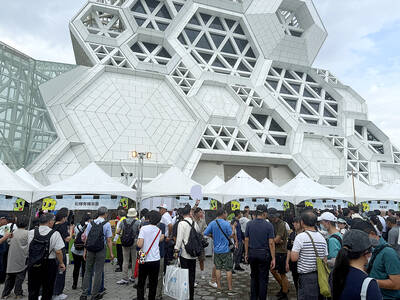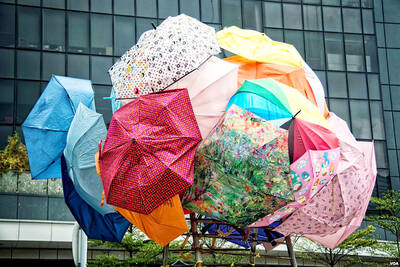Mary J. Blige, the most revered soul singer of her generation, just hasn't been the same since giving up drink, drugs and boyfriends who treated her, as she poignantly put it, "like a dog." Her albums since 2002's No More Drama have exulted in abstinence and her happy marriage to a record producer -- at the expense, some say, of the gut-level rawness that put her on the map.
In that sense, The Breakthrough ranks as more bad news: essentially a love letter to her husband, it gushes and coos in a way that would have been alien to the old Blige, who emanated a certain aloof dignity along with the pain. If retaining her "queen of hip-hop soul" crown is contingent on her being too troubled to enjoy it, she could be facing eviction from the royal residence. Tracking Blige's state of mind seems prurient, but it's of interest to those who have bought 20m copies of her seven previous albums. She didn't get to be queen of hip-hop soul (a klutzy tag for a genre better described as R&B with a restraining order) by glossing over personal details.
Fans have kept faith with her -- women especially -- since her 1992 debut album, What's the 411?. Blige's quiveringly confessional style (and ghetto-fabulous look, which leaned toward white fur and ice long before Puff Daddy bought his first Rolex) is her selling point. And fans who couldn't get enough of her distress on albums such as My Life -- since described by her as "straight-up death" -- reckon she has gone off the boil since she chose life.
They're not entirely wrong: the only really noteworthy thing she has produced since getting her act together is the single Family Affair, which was four years ago. Full of the euphoria of new love, it was life-affirming without being at all cloying, and was set to one of her quirkiest melodies to boot. Since then however, she has done what every contented newlywed does and let herself go, with offerings such as No More Drama and 2003's Love and Life.
But to criticize The Breakthrough is to reckon without the stunning power of her voice.
Blige may be celebrating no more drama in her life, but when she wants to, she can still sing like a drama queen.
These are The Breakthrough's high points. (And, thanks to producers like Rodney Jerkins, now recovered from the credibi-lity setback of producing the last Spice Girls album, she does it in a compellingly dark, percussive
setting that is almost as street as the early records.)
The first line of the first track, No One Will Do, is: "Seen many men in my time, but none of them compares to mine." The whole lyric, in fact, is an orgy of schlockiness, and you can imagine what a ghastly meal someone like Celine Dion could make of it. Ditto the swooniness of About You ("Boy, you've got me going crazy/ Don't know what to say anymore/ Cos I want to be your lady"). But Blige is a bred-in-the-bone urban soul singer, and her innate toughness saves the day. The lyrics may be wet, but she sings with cool conviction, not wasting a note, and certainly not indulging in Dionesque hit- that-crescendo rubbish. About You, which has a bit of Nina Simone's Feeling Good woven in, pulses with tension in a way that harks back to the early days.
She duets with Bono on U2's One, which is a bit Clash of the Titans, but other hook-ups -- with Black Eyed Peas' Will I Am and rapper The Game -- are taut and compelling. The one that will speak to loyalists, though, is the gut-wrenching Good Woman Down. "My troubled sisters, this is my gift to you," she says in the first verse, summing up this album's message: that there's light at the end of the darkest tunnel.

Water management is one of the most powerful forces shaping modern Taiwan’s landscapes and politics. Many of Taiwan’s township and county boundaries are defined by watersheds. The current course of the mighty Jhuoshuei River (濁水溪) was largely established by Japanese embankment building during the 1918-1923 period. Taoyuan is dotted with ponds constructed by settlers from China during the Qing period. Countless local civic actions have been driven by opposition to water projects. Last week something like 2,600mm of rain fell on southern Taiwan in seven days, peaking at over 2,800mm in Duona (多納) in Kaohsiung’s Maolin District (茂林), according to

It’s Aug. 8, Father’s Day in Taiwan. I asked a Chinese chatbot a simple question: “How is Father’s Day celebrated in Taiwan and China?” The answer was as ideological as it was unexpected. The AI said Taiwan is “a region” (地區) and “a province of China” (中國的省份). It then adopted the collective pronoun “we” to praise the holiday in the voice of the “Chinese government,” saying Father’s Day aligns with “core socialist values” of the “Chinese nation.” The chatbot was DeepSeek, the fastest growing app ever to reach 100 million users (in seven days!) and one of the world’s most advanced and

The latest edition of the Japan-Taiwan Fruit Festival took place in Kaohsiung on July 26 and 27. During the weekend, the dockside in front of the iconic Music Center was full of food stalls, and a stage welcomed performers. After the French-themed festival earlier in the summer, this is another example of Kaohsiung’s efforts to make the city more international. The event was originally initiated by the Japan-Taiwan Exchange Association in 2022. The goal was “to commemorate [the association’s] 50th anniversary and further strengthen the longstanding friendship between Japan and Taiwan,” says Kaohsiung Director-General of International Affairs Chang Yen-ching (張硯卿). “The first two editions

It was Christmas Eve 2024 and 19-year-old Chloe Cheung was lying in bed at home in Leeds when she found out the Chinese authorities had put a bounty on her head. As she scrolled through Instagram looking at festive songs, a stream of messages from old school friends started coming into her phone. Look at the news, they told her. Media outlets across east Asia were reporting that Cheung, who had just finished her A-levels, had been declared a threat to national security by officials in Hong Kong. There was an offer of HK$1m (NT$3.81 million) to anyone who could assist